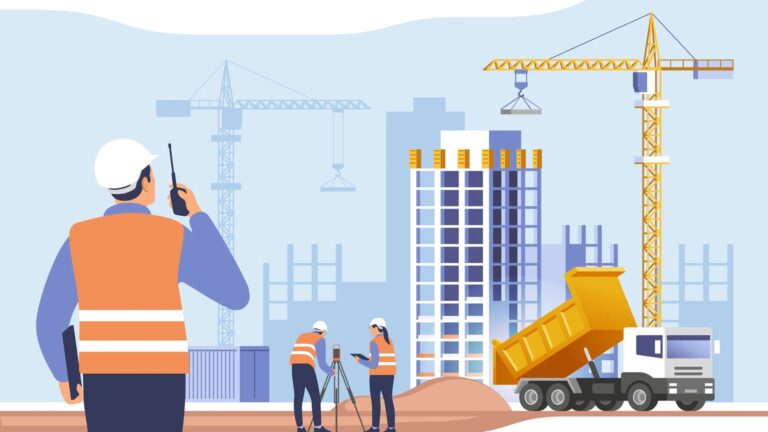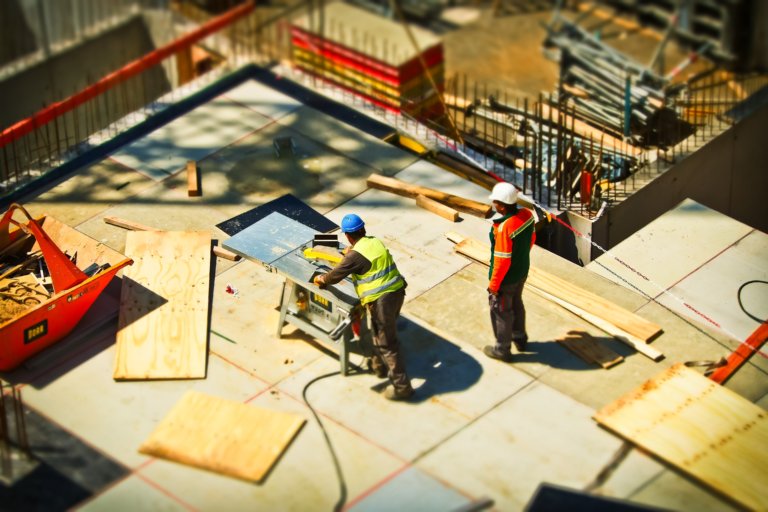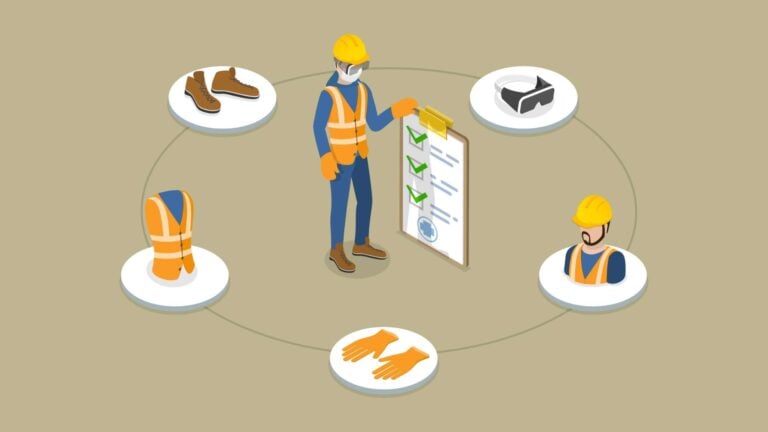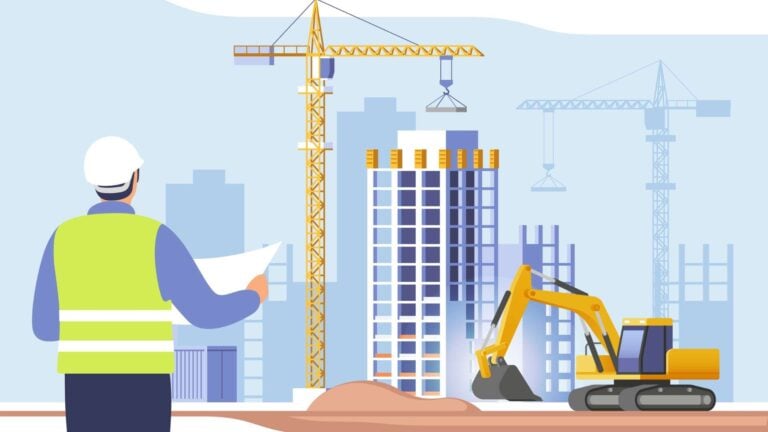Finding skilled construction workers can be a daunting task. This guide provides 7 essential tips to help you hire the best talent and keep your projects on track. These include writing compelling job ads, conducting effective interviews, offering fair pay, and investing in training.
The right workforce is critical in the construction industry, but finding and retaining skilled talent can be a real challenge. It’s made more difficult by labor shortages, varied workforce needs, and high turnover rates.
Failing to overcome these obstacles can put your project quality and success at risk. Mis-hires can also lead to delays, budget overruns, and low team morale—threatening your company’s reputation and viability.
We’re here to help. In this guide, we’ll teach you how to hire construction workers with the right qualities. Our 7 tips teach you the best way to find construction employees, streamline your hiring process, and ensure you find the perfect people for your business.
Key Takeaways
- Hiring decisions for construction projects directly impact project success. Effective hiring reduces turnover and prevents delays and budget overruns.
- To find skilled workers, you must craft engaging job descriptions, use various recruitment channels, and conduct thorough interviews.
- Prioritize safety and teamwork in your hiring process to enhance on-site efficiency and minimize accidents.
- Offer competitive compensation and professional development opportunities to retain your top construction talent.
The Importance of Effective Construction Recruitment
In construction, an effective recruitment process is vital. Here’s why:
Direct impact on project success
Skilled workers complete tasks efficiently and meet high standards in an industry where precision is paramount. Bad hires might do substandard work.
Safety considerations
Construction is inherently risky, requiring skilled workers who are vigilant about safety protocols. The US Bureau of Labor Statistics (BLS) reports construction as having the second-highest number of workplace deaths, and over one-third of these deaths are due to falls, slips, and trips. A workforce ill-equipped to handle risks can lead to increased accidents and safety breaches, while a strong workforce can prevent these hazards.
📚This Might Interest You:
Learn about 7 common construction site hazards and how to prevent them.
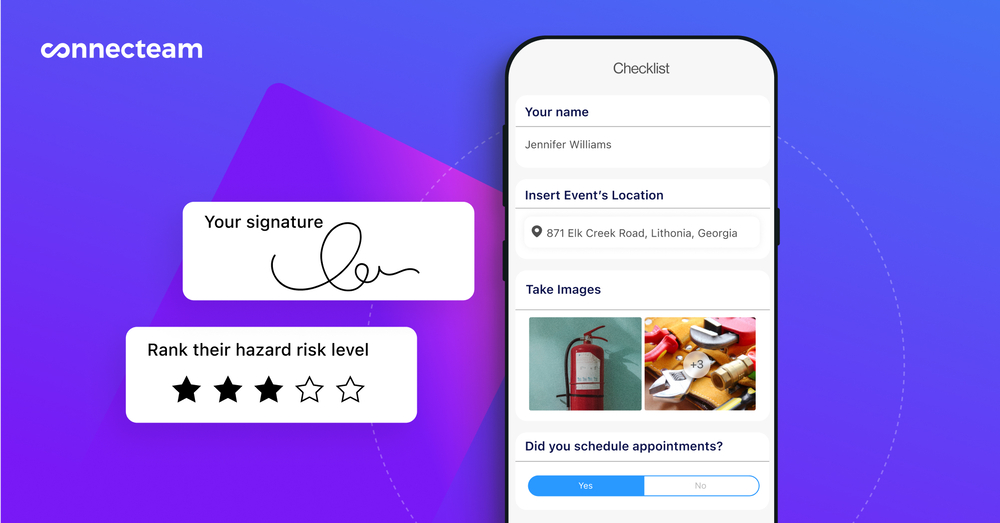
Team dynamics
The construction sector involves collaborative projects where teamwork is essential. Individuals with the skills and abilities to work well in a team can significantly enhance the efficiency and atmosphere of the worksite. On the other hand, disrupted team dynamics can lead to conflicts and reduced productivity.
Turnover and financial impact
Bad hiring choices can lead to significant turnover. In the construction industry—which had a turnover rate of 68% in 2022—high turnover disrupts project timelines and contributes to budget overruns. It also increases hiring and training costs. Hiring the right people can prevent costly errors and rework.
📚This Might Interest You:
Learn about 5 ways to address persistent employee turnover in construction.
Reputation and growth
The quality of your hires impacts your company’s reputation over the long term. A track record of successful projects powered by a competent, reliable workforce can lead to more business opportunities.
What Qualities Make a Good Construction Worker?
Understanding how to find good construction employees begins with understanding what makes a construction worker effective and how they can contribute to your project’s success.
A good construction worker has various technical skills, like the ability to operate tools and machinery, familiarity with safety protocols, and trade-specific skills. But attributes like physical endurance, attention to detail, communication, and teamwork are just as crucial.
Extensive experience isn’t always necessary, as qualities like a strong work ethic can help candidates with varying experience levels thrive in the construction environment.
Moreover, workers’ attitudes and problem-solving approaches are crucial, as a proactive mindset can greatly impact project outcomes. A proactive worker can anticipate obstacles, take initiative, and adapt to changes.
Learn How To Recruit for Construction Workers: 7 Expert Tips for Hiring
Create an effective job post
Finding good construction employees starts with crafting a strong construction worker job description. Here’s how to write one:
Clearly define the role
Clearly outline the role, and specify required skills and experience. For instance, a job description for a site manager position should detail specific experiences—like managing residential projects or proficiency in construction management software.
A construction worker’s duties and responsibilities might include:
- Preparing construction sites.
- Operating heavy machinery.
- Loading and unloading building materials.
- Assisting with construction operations.
- Following safety procedures.
- Using tools and equipment.
- Reading and interpreting plans.
- Collaborating with team members.
Also, clearly detail the qualifications and requirements, such as:
- High school diploma or equivalent (vocational training or trade certification is a plus).
- Ability to operate heavy machinery (certification is a plus).
- Strong understanding of construction tools and equipment.
- Willingness to work in various outdoor conditions.
Showcase your company culture and benefits
Emphasize what sets your company apart from others, such as a commitment to sustainable building practices. Mention specific benefits you offer, like ongoing training programs, excellent health benefits, or flexible working arrangements. Finally, outline your company’s mission, goals, and values to attract candidates who align with them.
Use clear language
Ensure the job post’s language is engaging and free of jargon, making it accessible to a broad range of candidates, including those from other industries. For instance, use full terms instead of acronyms—like “mechanical, electrical, and plumbing drawings” instead of “MEP drawings.”
Optimize for search engines
Incorporate relevant construction-related keywords to enhance the visibility of your job posting online, expanding your reach to more qualified candidates.
You might use keywords like construction experience, general maintenance, excavation, plumbing, carpentry, concrete work, framing, and power tools.
Post your job in the right places
Wondering how to attract construction workers with your job post? The best way to find construction employees is by strategically posting your job ad where candidates will see it.
Use online job boards
Post your jobs on online job boards that specialize in construction and related fields.
Websites like Indeed, Monster, and Craigslist are great, but niche job boards catering to construction professionals—like ConstructionJobs, iHireConstruction, and Roadtechs—can help you reach candidates actively seeking opportunities in your industry.
Embrace social media
Platforms like LinkedIn are ideal for job seekers and professional networking. At the same time, you can use Facebook and Instagram to showcase your company culture and attract younger or more digitally savvy candidates. Offering glimpses into your company’s day-to-day operations can attract candidates interested in your construction work.
Network through industry associations
Construction industry associations and local trade groups—such as the Associated General Contractors of America (AGC) and the Associated Builders & Contractors (ABC)—can be invaluable for finding skilled workers.
These groups have job boards, mailing lists, and networking events. They can help you reach individuals already engaged and invested in the construction industry.
Community outreach
Participating in local job fairs, vocational schools, and community colleges can help you connect with emerging talent eager to work for construction companies.
Employee referrals
Encourage your current employees to refer skilled professionals from their network with an employee referral program. Often, workers who already understand and appreciate your company’s culture and standards can recommend the best candidates.
💡Pro Tip:
Use a communication app like Connecteam to update your employees about open positions. For employees who refer skilled candidates, offer employee recognition gift cards, show appreciation with personalized badges, or give a shout-out in the company feed.
Conduct thorough interviews
After you have a pool of qualified applicants, conduct interviews to assess them thoroughly. Develop questions to ask all candidates. Your questions should cover technical skills, experience working in similar jobs, problem-solving abilities, and handling of workplace challenges.
📚This Might Interest You:
Read our guide on interview questions for construction workers.
Standard questions
These questions help you understand a candidate’s basic qualifications and experience. They should cover candidates’ knowledge of the construction role and relevant work histories.
Example question: “Can you describe your role and responsibilities in your last construction project?”
Practical skills questions
Ask about their experience with specific equipment or tasks relevant to the job.
Example question: “Can you walk me through your process of interpreting and following construction blueprints?”
Problem-solving questions
Pose hypothetical scenarios or discuss past situations to assess candidates’ abilities to handle unexpected situations and their problem-solving approaches.
Example question: “How would you handle an unexpected delay in material delivery?”
Communication and teamwork questions
Ask questions that assess their ability to work within a team and communicate effectively.
Example question: “How have you resolved a conflict with a coworker?”
💡Pro Tip:
Involve key team members in the interview process to get a well-rounded view of how each candidate might fit in at your company.
Conduct skills assessments
Conducting comprehensive skills assessments is another vital step in the construction hiring process, providing a deeper understanding of a candidate’s technical abilities. Assessments can help you select candidates to hire.
Assess practical skills
In construction, practical skills are as essential as theoretical knowledge. Consider setting up real-world scenarios or skill tests relevant to the job. These could involve reading blueprints, executing a small task, or demonstrating safety knowledge through a mock drill. These assessments give you a clear picture of the candidate’s proficiency.
For instance, ask the candidate to perform a basic construction task, like measuring and cutting materials, to assess their proficiency with tools and materials. (You can do this during or after the interview process.)
Conduct a hands-on job trial day
Inviting potential hires for a trial day is an effective strategy in the construction hiring process. It offers insights into a candidate’s skills, work ethic, and team fit.
Here’s how to implement this strategy effectively:
- Describe the trial day’s activities, like specific tasks and team interactions, to prepare the candidate.
- Meet all legal and safety requirements, like having on-site supervision and temporary workers’ compensation insurance, before the trial day.
- Have potential hires work with current team members to assess fit and teamwork skills.
- Look beyond technical skills to evaluate problem-solving, communication, and collaboration.
- Give constructive feedback to candidates after a job trial day. This will enhance their professional development and your company’s reputation regardless of whether you plan to hire them.
- Collect team feedback and assess the candidate’s performance and integration.
💡Pro Tip:
Consider using a time clock app like Connecteam that features location tracking for your construction workers, You can check out our comprehensive guide to the best construction time tracking software, designed to streamline project management, enhance team coordination, and improve job site productivity.
Connecteam will also ensure safety by alerting you when workers, including trial employees, leave designated work zones. Connecteam also offers digital incident report forms that allow workers to report potential hazards instantly.
Offer competitive compensation
Offering competitive compensation with your job offer is key to attracting and retaining top talent in the construction industry—whether you’re hiring full-time, part-time, or contract workers.
Understanding current market standards, including US minimum wage laws, is crucial for all types of employment. Minimum wage rates vary, often exceeding the federal minimum hourly rate of $7.25. In construction, which requires specialized skills, the market rate averages at $22.29 per hour.
Here’s how to attract construction workers with competitive compensation: pay them the same as or more than the average. In addition to pay, offer other forms of compensation—from basic benefits like health insurance to other perks like performance-based bonuses, tool reimbursements, or retirement plans.
Because compensation standards frequently change in the construction market, you must regularly review and adjust your compensation packages. This ensures they remain competitive and fair.
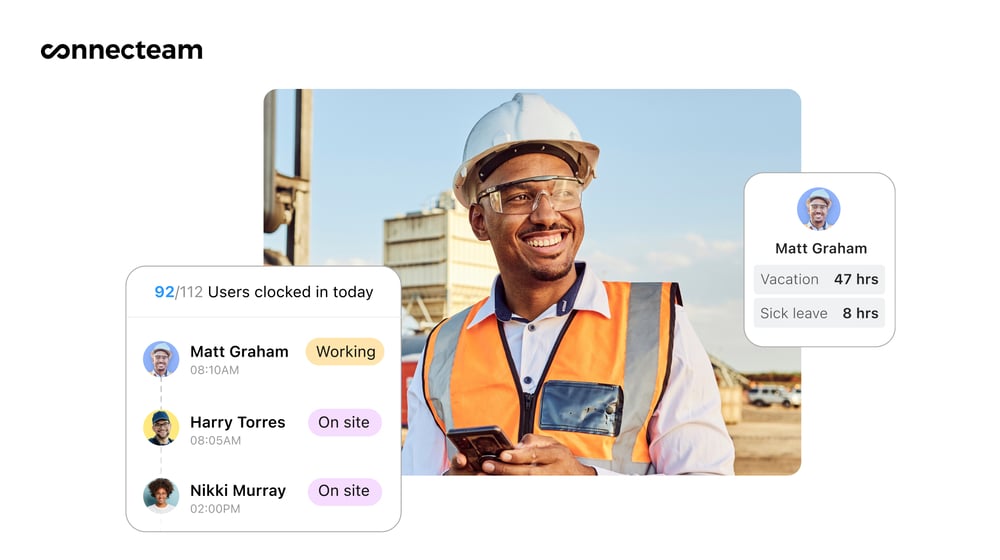
Invest in training and development
Effective training improves your team’s skills while enhancing job satisfaction and loyalty. Here are the top tips to follow:
Offer onboarding training
Implement a comprehensive onboarding program that familiarizes new hires with your company culture, safety protocols, and job responsibilities. This initial phase is crucial for setting new employees up for success and demonstrates your commitment to their safety and professional development.
🧠 Did You Know?
With Connecteam’s employee training software, you can onboard new hires with tailored courses on construction topics—featuring quizzes, videos, and infographics. Workers can access and complete these anytime from their mobile devices. You can track their training progress live, ensuring everyone is current with industry-specific learning.
Provide ongoing training
With the construction industry’s constant evolution, keeping your team updated on the latest technologies and methods is vital. Hold regular training sessions—e.g., monthly, quarterly, or during significant industry changes—to benefit your projects and promote your employees’ career growth.
Encourage certifications
Help your employees gain additional certifications by providing resources, study time, or financial aid. Such support often results in a workforce that’s more skilled, engaged, and loyal to the company.
📚This Might Interest You:
Learn about some excellent certifications in our guide on 9 construction certifications to advance your team and business.
Develop apprenticeship programs
Creating apprenticeship programs within your organization can be a great way to develop your existing workers’ skills in training and help you find new talent.
These programs combine on-the-job training with classroom instruction, providing apprentices with a comprehensive skill set. Apprentices work under experienced mentors, gaining practical experience on various tasks and projects. Many apprenticeships lead to full-time hires.
Measure the impact
Continuously evaluate the effectiveness of your training initiatives. Ensure they align with your employees’ needs and your company’s goals. Gathering feedback and adapting your programs accordingly can lead to more effective training and higher employee satisfaction.
Consider seasonal hiring for peak periods
Demand for labor in the construction industry varies with the seasons, influenced by weather, project cycles, and regional construction trends. Understanding and effectively managing seasonal hiring can be vital to maintaining productivity and controlling project costs.
Optimizing seasonal hiring involves many of the strategies for regular hiring, like effective training, fair compensation, and compliance. But it also requires its own strategies. These include:
- Identify peak periods: Be prepared for times of high demand.
- Build a talent pool: Maintain a list of dependable seasonal workers, including past employees and recruits identified during quieter periods.
- Monitor worker performance: Evaluate seasonal workers’ performance for potential rehire or full-time employment opportunities.
- Implement flexible scheduling: Offer flexible work hours, including shift swapping, to attract seasonal workers and ensure you’re always adequately staffed.
- Use technology: Shorten time-to-productivity with digital solutions that streamline the hiring.
🧠 Did You Know?
Connecteam is an all-in-one digital solution that makes employee onboarding seasonal hires a breeze.
Bottom Line on Hiring Construction Workers
Hiring the right employees is critical, especially in an industry grappling with labor shortages, high turnover rates, and legal and safety considerations. These challenges highlight the need to know how to find good construction employees.
To select great workers for your business, start by creating compelling and well-advertised job posts. Then, conduct effective interviews and practical trials to assess candidates thoroughly. Finally, offer competitive pay and thorough training to attract and retain top talent.
Take your construction hiring to the next level, use the Connecteam construction employee management app. It can help streamline recruitment, schedule training and onboarding, track employees, and comply with legal and safety regulations.
Get started with Connecteam today for free!
FAQs
How much are construction workers paid in the US?
According to Talent.com, the average annual salary for construction workers in the United States is $39,000 ($18.75/hour).
How much does it cost to hire construction workers?
In the US, hourly wages for construction workers can range from around $15 to over $30. But the cost of hiring construction workers encompasses more than hourly or contractual rates. It includes recruitment and training expenses, along with benefits like health insurance, bonuses, retirement plans, and paid time off. It also includes protective equipment and safety gear, overhead costs like administrative expenses and utilities, and workers’ compensation insurance.

